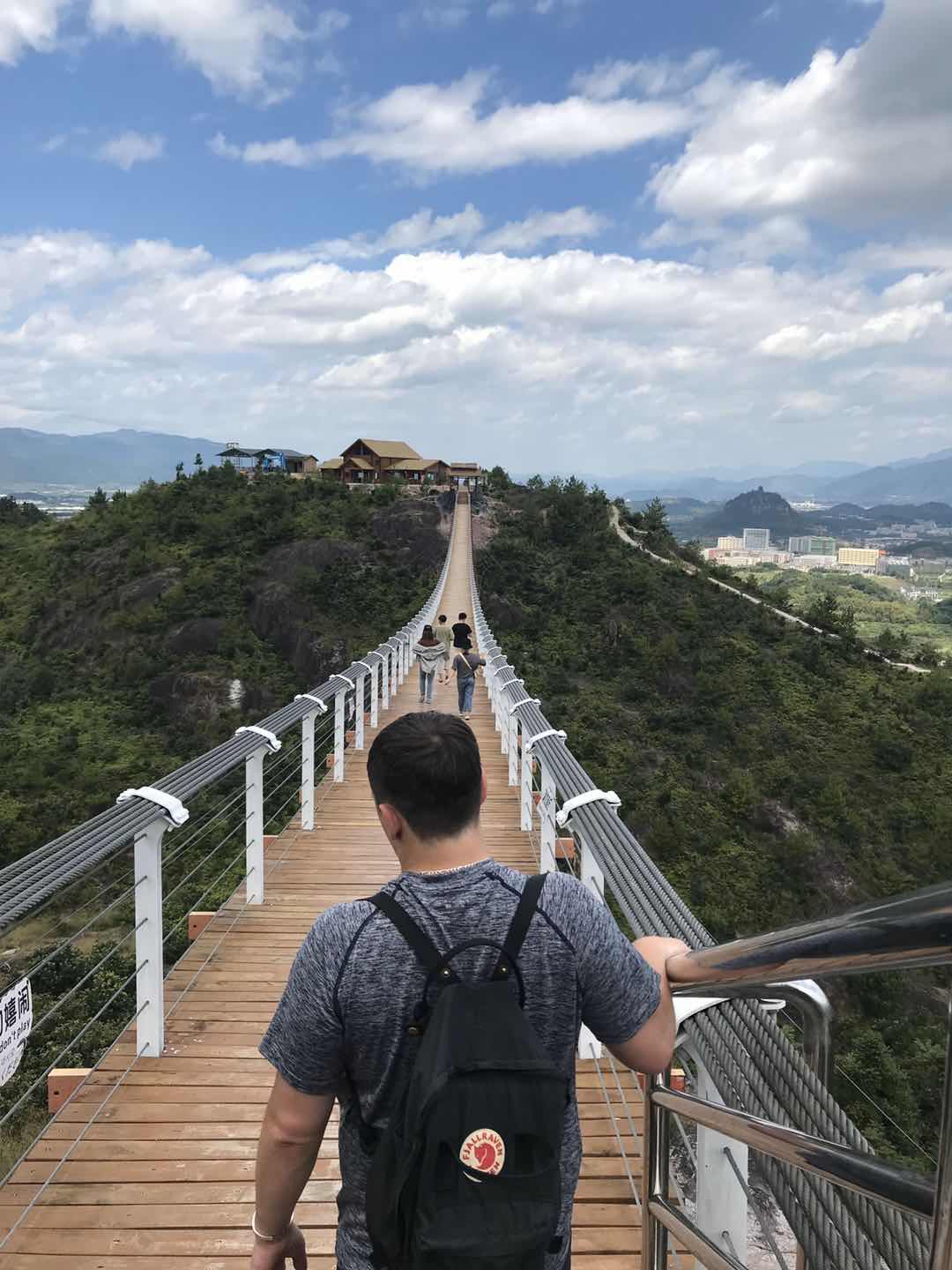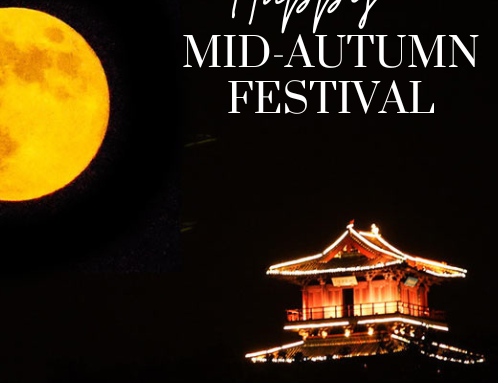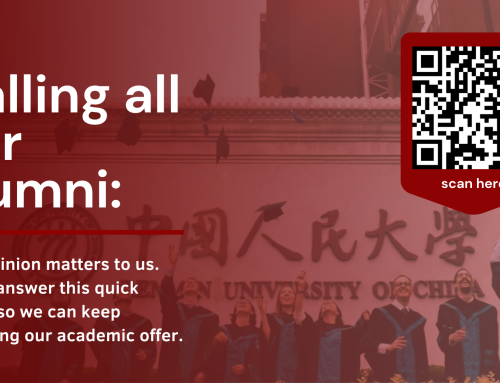Get to know our Students at the Contemporary China Studies Program!
In 2019, Dustin moved from a small town in Vermont to China’s capital city. His goal is to learn about Sino-US relations from a Chinese perspective to be able to more comprehensively understand how these will be shaped in the future.
Hi Dustin, thanks for agreeing to this interview. Why don’t you just start with your name, your background, and a little bit about yourself?
Hello, I am Dustin and I am from the US, more specifically Vermont. I come from a very rural area and there were 97 kids in my graduating class with six towns attending that high school. I’m pretty sure there are more cows in my state than people! The biggest culture shock was not moving to China to start school, but rather adjusting to city life. When the school alone out populates the town I live in, possibly a larger population than the largest city in Vermont, it is a big difference from the rural town I grew up in. I went to a small university, Castleton University, which is in my hometown. I graduated with a B.A. in history and wrote my undergraduate thesis about China.
What got you interested in this program?
As I mentioned before, I wrote my undergraduate thesis about China. As I was researching my thesis I became more fascinated with China. I talked with my advisor, who was the Chinese history and culture teacher, about what my future looked like after Castleton University, and I expressed to her my interest in China and how I would like to take my career path in that direction. She recommended me to look at Renmin University for a potential master’s degree. I applied to Tsinghua University and Renmin University and got admitted to both programs. I chose Renmin University over Tsinghua University because the people I talked to at Renmin University made me feel more welcomed. I had a problem with the application, I emailed both universities, but only Renmin University responded and directed me to where I needed to be. No matter what problem I had since then, the staff of Renmin University was very helpful, especially Sara, a CCSP alumnus that is now one of the program coordinators.
Has the program met your expectations so far?
I am happy I took the leap to move halfway around the world to obtain my Master’s degree. The CCSP program has provided me an incredibly rich experience. I have met some awesome people, the professors are knowledgeable and insightful, and the campus has everything you need. The best part of the program is the diverse body of students. This creates a dialog in class that is engaging. We have people from all around the globe that bring their own experiences, cultures, and points of view to the table and we are able to discuss complex topics in a way that is enlightening and challenges my points of view. The one thing I would like to see improved is there to be a stronger focus on the Chinese language. I believe that language is the key you use to gain access to the culture, the people, and the way of life of those people. It’s the only way to fully immerse yourself in that culture is through the language and without that understanding of the language, you will be stuck on the outside looking in.
Where are you right now? How has the COVID-19 outbreak affected your life, so far?
Right now I am living in a small rural village in 浙江 (Zhejiang) province called, 百步 (Baibu). It is in the foothills surrounded by tea terraces and a large river. The COVID-19 has caused me some worry in waves. I was worried about it when China first announced it, but after a while, I got used to it and things have mostly returned to normal. I am incredibly worried now because where my mom works in Vermont has had two confirmed cases of the virus.
During my time at 百步, I saw some incredible things. I was amazed at how people responded to the virus. Initially, some people were incredibly worried and you could feel the tension in the village. As many of you know, this happened in the middle of Chinese New Year and many Chinese people travel from the cities they work in for most of the year to their home town or villages. Many people in 百步, wanted no cars to go through the village and no one could come to visit. After the initial announcement, people have settled down a little bit, people were more constructive on how to approach it. They set up checkpoints at the entrances of the village, make sure people are wearing their masks, and temperature checks. One thing that made me feel like home, is that people looked out for each other. Many people were helping the most vulnerable. Some would cook food, donate masks, and provide necessities for the elderly and the less fortunate.
I am also now the personal English teacher for the children of the family I am staying with. I guess I am doing my part as well (said jokingly).
Oh wow, life in rural China must be very different from student life in Beijing. What are you learning from this experience?
Rural China is much different than Beijing, but I have found some similarities between rural China and rural Vermont. In both rural Vermont and 百步 (and the surrounding area) people seem friendlier, neighborly, and they have the willingness to give the shirt off their back if someone needed it. The slow pace lifestyle is what I am used to and that is something you can find in any rural area. Time seems to go by slow in rural China and it seems like I don’t have enough time in the day in Beijing to get done the things I need to get done.
How about your academic life, is the CCSP continuing with online classes?
The CCSP has moved to online learning. I have never taken an online class before so it is getting some used to. I am usually disorganized and having online classes is making it harder, but that’s on me. I am registered for 9 courses that equal 21 credits, so this semester is going to be a tough one. I have enjoyed the classes themselves. There is plenty of discussions in the group chats of the classes, but they can get annoying when you are trying to sleep and your European classmates are joining the discussion. Nothing beats face-to-face learning, but these are unusual times we are living in. Hopefully, I can see my classmates soon.
Thank you again for agreeing to this interview, one last question: would you recommend this program to others?
I would absolutely recommend this program to someone. It is a rich experience for anyone who has a passion for China. This is a program that is fitting for people from all different backgrounds. There are no specialization requirements beforehand. The only requirements are people to have a passion for learning and a passion for China.









Wow, Dustin, you’ve had quite an experience in that village. I hope everyone back home stays safe and healthy.
Congratulations Dustin. You are really impressive and you are making a true impact on tbe future. Travel safely!